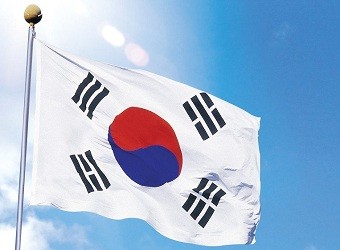South Korea warned Japan on Monday to exercise caution when making remarks about bilateral ties, including the issue of Korean “comfort women” forced to work in Japanese military brothels during World War Two.
The warning followed reported comments by Toshihiro Nikai, secretary general of Japan’s ruling Liberal Democratic Party, during a visit to Seoul to meet South Korean President Moon Jae-in and lawmakers.
Speaking with South Korean lawmakers, Nikai said on Saturday that those plotting schemes to block bilateral ties from moving forward should be “eradicated”, several Japanese, and South Korean media reported.
“I don’t know if in South Korea there are even a handful, but they must be eradicated,” Nikai was quoted as saying. He also expressed hope for the two countries to “get along well” and not to have relations tangled with “trivial matters”.
Nikai’s office at the Liberal Democratic Party could not confirm his reported comments, which appeared not to include any direct reference to the “comfort women” issue.
But he came under fire from South Korean civic groups for possibly criticizing people who support the reversal of a controversial agreement struck by Tokyo and Seoul’s former conservative government in 2015 to resolve the issue.
“Comments related to relations between South Korea and Japan, including those regarding the comfort women issue, should be made with care,” a South Korean foreign ministry official said, in response to Nikai’s reported comments. The official declined to be identified citing sensitivity of the issue.
‘Comfort women’ is a euphemistic term referring to those forced to work in Japan’s wartime brothels, an issue that has long plagued bilateral ties.
Under the 2015 agreement, the two governments agreed that the issue would be “irreversibly resolved” if both sides fulfilled their obligations.
Nikai, the number two executive in his party behind Japanese Prime Minister Shinzo Abe, is usually known for his generally warm ties with South Korea and China.
He is slated to meet with Moon later on Monday, where he is expected to deliver a letter from Abe.
During his successful campaign for a May 9 election, Moon suggested he could try to renegotiate the 2015 “comfort women” agreement, reached by his predecessor Park Geun-hye and Abe in which Japan made an apology to the women affected and promised about one billion yen ($9.07 million) for a fund to help them.
Some of the comfort women, most of whom are now deceased or very elderly, have rejected the agreement and asked for a personal apology from Abe himself, among other demands.
In a phone call a day after taking office, Moon told Abe “many of the public do not agree with the deal” and the government needs more time to resolve the issue.
Abe and other Japanese officials have repeatedly said it was vital for the 2015 agreement to be implemented and for the two sides to move ahead based on a future-oriented relationship.
Source: Reuters


